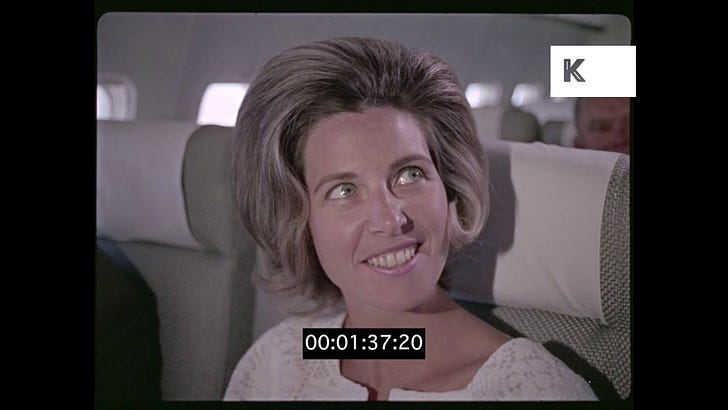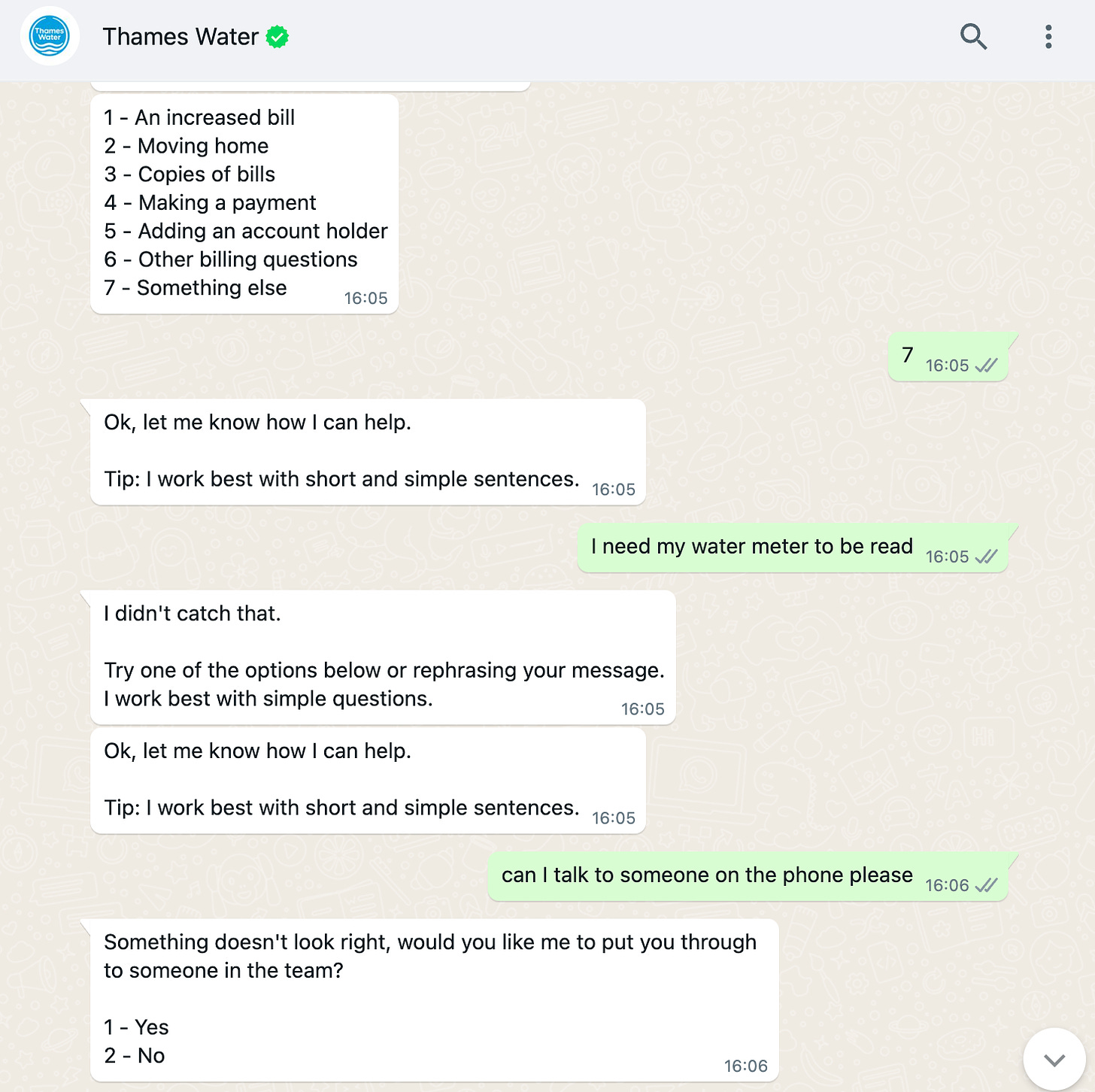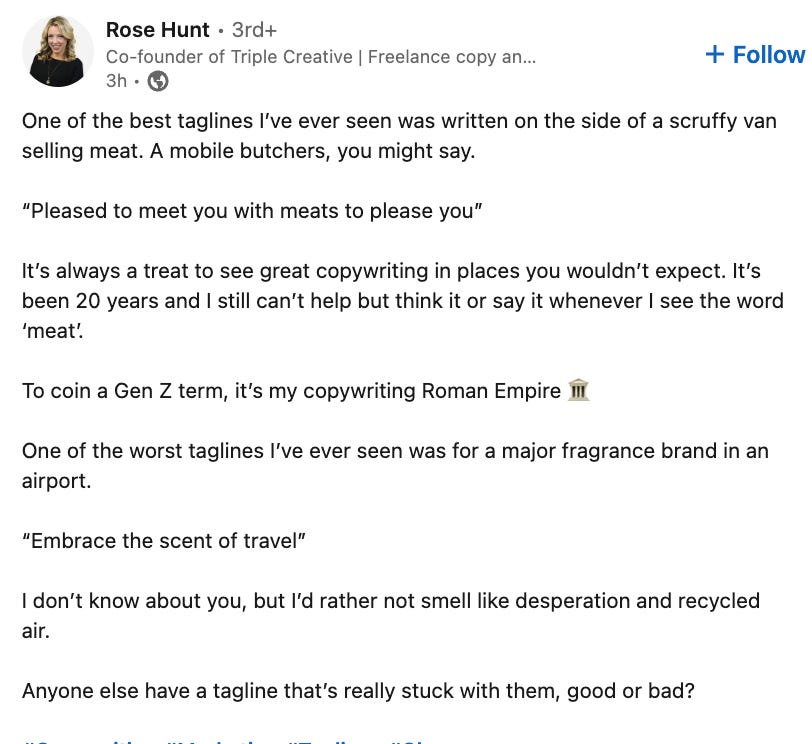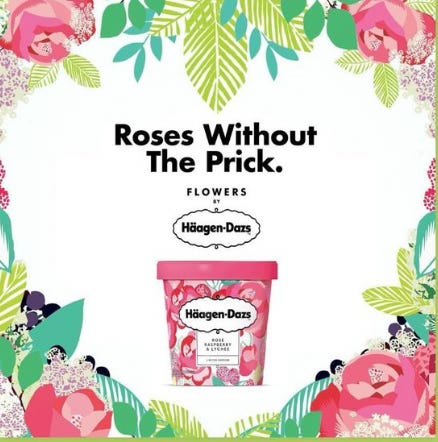Customer service isn’t sexy – but it could be
It’s a massively untapped creative possibility, particularly when the bar for ‘good’ customer service is currently located somewhere around Satan’s ankles
Take my hand and come with me into the time portal; we’re going to journey back to the 1950s, when commercial flight was, arguably, at its best. Cabins were spacious, meals were served next to flower arrangements and people dressed up to travel.
Now whip back to present-day – a time in which one major airline manufacturer has filed a seating patent that would have people straddle a bicycle seat for an entire flight.
For the average person, customer experience has seriously devolved. This is never more obvious than when you’re falling into the deep, dark oubliette that’s the customer service helpline. I’ve had some of the most rageful moments of my life while stuck on hold, listening to All Saints’ Pure Shores on repeat.
In China, Tencent has taken this to its most miserable conclusion, building an IRL customer service centre to deal with ‘last resort’ cases. MIT Technology Review reported on a story where a 16-year-old had to travel over 800 miles, on his own, to see a representative and get his suspended account restored. And in the UK, customer service is so bad that Octopus Energy built an entire radio ad campaign around theirs being not shit.
Admittedly it’s not a sexy discipline like advertising or design, but customer service is enormously powerful and brands should be wielding it like any other creative tool. Spending bank on a blockbuster ad when your customer experience is cruel and unusual is the same hypocrisy as bleating about diversity when you’ve got a copy-and-paste board of directors.
And when brands get it right, it’s joyous. For proof, look at Pot Gang – a subscription company set up as a lockdown side hustle that’s since delivered boxes of seeds and growing instructions to 45k people. Some of that success has got to be because of a genius customer service strategy, which lets people WhatsApp ‘The Potline’ any time of day or night with their burning plant questions.
I tested it out by sending a note about some no-show mushrooms, and received a succinct, helpful and friendly reply within six hours. Thames Water – a company that made £166m in profit in 2023 - also has a WhatsApp customer service function, apparently run by a confused bot. And we can expect that sort of thing to get a lot worse as more brands start using AI to solve their problems.
It’s not just the WhatsApp line that makes Pot Gang’s customer experience so great, however. It’s their thoughtfully written growing instructions that come tucked into every box. Or the fact that they regularly send emails to customers asking what seeds they’d like in future deliveries, as well as social media posts asking for feedback on ongoing projects, like the design of a new plant manual. There’s genuine effort to involve people in the day-to-day of the business as well as offer actual, uncynical help and support.
According to Smith, the importance of “in your pocket and responsive” customer service (ie, nothing like the above👆) became clear during lockdown, when he was struggling to recover from a knee injury and started working with a coach that encouraged people to share exercise videos and questions over WhatsApp, for one-on-one advice.
“I applied the same thing to Pot Gang,” he says. “It feels like there’s a benefit to us and our customers if we’re able to support them in a really responsive way, and WhatsApp for me feels like a natural place to be – it’s casual, and back and forth, and you can speak and send pictures in a really quick and responsive way.”
But is it really worth putting this level of time and attention into it? How much difference can it really make? Well, according to Smith, quite a lot - particularly for a subscription company that needs to maximise the lifetime value of a customer by keeping them buying what you’re selling.
“I realised that inevitably people are going to have questions about the growing process, and will be worried about their leaves turning yellow or something not sprouting or any number of things if they don't have experience.
“I felt like hand-holding people through that is going to a) make them feel better about growing with us, and b) increase their chances of success, and therefore increase the likelihood that they’ll keep buying boxes, and additional bits and bobs, so the average spend of a customer goes up.
“I feel like a lot of companies don’t view customer service as something that can bring value – they view it as a department that executes functional tasks. It’s an admin role, so they use it as a low-calibre follow-up process, which is a big missed opportunity.”
And I also asked the question that everyone must be wondering: how many weirdos do Pot Gang get? “We get a few,” he says, although there’s a nervous laugh that suggests it might be a bit more than that.
(Mainly wordy) things I enjoyed this week
Naming something makes it so, according to a new study that says giving behaviours a specific tag encourages people to adopt them. The link includes a lovely story about ‘plogging’ - picking up rubbish while jogging.
More from the world of language: Flock Freight, a freight shipping and logistics company, has a great ‘freight dictionary’ on their website, which thoroughly debunks the technical language, as shown above.
Apparently codpieces were called ‘braguettes’ in Paris.
Companies are obsessed with naming themselves after things and characters from Lord of the Rings (and, to a lesser extent, The Hobbit). An incomplete list, several of which are thanks to Peter Thiel, follows:
Palantir: a data tech company named after Saruman’s all-seeing, indestructible crystal ball
Lembas Capital: an investment firm named after crispy Elven bread
Smaug-72B: an open-source AI language model named after a dragon
Varda: a space-based drug manufacturer named after an all-powerful queen of the stars
Anduril: a defense startup named after Aragorn’s sword
Mithril: a decentralised social media platform named after lightweight Elven armour
Valar Ventures: a venture capital firm named after divine spirits
Triple Creative co-founder Rose Hunt shared a great example of brilliant copywriting in an unexpected place:
And copywriter Ellen Ling posted a genius bit of writing for Haagen Dazs:
Away from words and language, I’m enjoying seeing new recipe and food-planning apps like Crouton and Cherrypick.
And lastly, bringing a bit of the Dune world into Microsoft Flight Simulator is the perfect brand tie-in. Subscribe below for a steady stream of content just like this, hot and fresh in your inbox.










